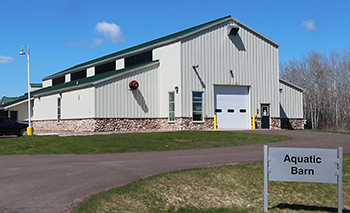October 15 -16, 2025: SAS² 2025 Conference
Baltimore, MD
Welcoming Remarks and SAS² Achievements – Yonathan Zohar (IMET).
Lessons learned and way forward for RAS in the U.S. – Marianne Naess (Great Northern Salmon).
Towards environmental compatibility and genetic containment and the Icelandic story of salmon on land – Ragnar Jóhannsson (Marine and Freshwater Research Institute).
Reproductive efficiency: Progress in sterility induction achieved- Ten-Tsao Wong (UMBC).
Delivering the future: A commercial egg supplier’s recipe for success – Jason Collins (Benchmark Genetics).
An –omics-based approach to improve the aquaculture efficiency and broodstock management of North American Atlantic salmon (Salmo salar) – Jonas Miller (UMBC).
Out-of-season spawning of Atlantic salmon: Shifting Atlantic salmon photoperiods to achieve off-season spawning in freshwater RAS – Tyler Firkus (UWSP-NADF).
RAS Feed Evolution – Sabine Mader (Skretting).
Driving sustainable innovation in salmon RAS feeds – Maksim Mironenka (BioMar).
Alternative RAS feeds – Allen Place (UMCES).
UMaine Aquaculture Research Institute’s fish nutrition research – Matt Hawkyard (UMaine).
Conditions that Promote or Inhibit Off-flavor in RAS – John Davidson (Freshwater Institute).
Off-flavor: Understanding and detection – Matt Stromberg (UMBC).
Off-flavor analysis – Bobby Harrington (UMaine).
4-H Introduces Amazing Aquaponics – Amy Lang (UMD).
Aquaculture at Western Tech – Mark Kather (Baltimore County Public Schools).
Aquaculture in Action at North Harford High School – Laura O’Leary (Harford County Public Schools).
Attitudes toward land-based aquaculture (RAS) in K-12: Parents, teachers, administrators (A two study proposal) – Gal Harpaz (UMBC).
Aquaponics in Action: Summer Professional Learning Institute pilot – Keyia Yalcin (Fishnet).
Aquaculture in the classroom – Emily Fair (Carroll County Public Schools).
Turning fish farm waste into energy: Advances in anaerobic digestion of RAS effluents – Abhinav Choudhury (Freshwater Institute).
Desalination of salmon sludge for application as agricultural fertilizer – Tessa Dumadag (UMBC).
Microbial community structure and function in biofiltration compartments of an Atlantic salmon marine recirculating aquaculture system – Anne Baldino (UMCES).
Navigating the future: Building blocks for comprehensive partnerships – Timothy Minor (University System of Maryland).
SAS² industry priorities – Steve Summerfelt (Superior Fresh).
Great Northern Salmon priorities – Dean Guest (Great Northern Salmon).
Ozone innovation and research priorities in aquaculture – Sannel Patel (Pinnacle Ozone Solutions).
Hudson Valley Fisheries priorities – Britanny Peachey (Hudson Valley Fisheries).
Navigating to lowering CapEx & OpEx – George Nardi (Innovasea).
The evolution of salmonid nutrition: Insights from a feed supplier’s perspective – David Seeley (Skretting).
U.S. finfish aquaculture: Major challenges – David Kelly (Cuna del Mar).
Investor’s perspectives – Max Holtzman (Ocean 14 Capital).
A journey from segment inception to the future: From naive confidence, to hard learning, to professionalism – Erik Heim (XcelerateAqua).
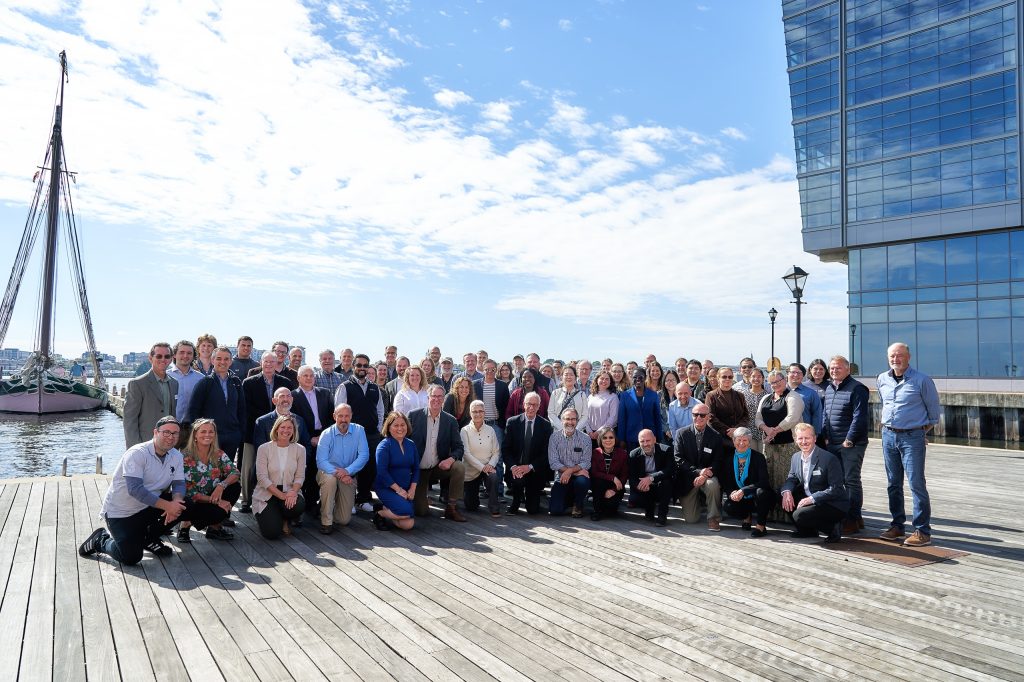
June 9 -10, 2025: RASTECH
San Diego, CA
Broodstock management data from SAS² – Yonathan Zohar (IMET)
Advancing domestic egg supply of North American strain Atlantic salmon – Nick King (SalmoGen)
John Buchanan (Center for Aquaculture Technologies)
Andrew Preston (Benchmark Genetics)
Factors that promote and inhibit off-flavor – John Davidson (Freshwater Institute).
Off-flavor mitigation technology research – Matt Stromberg (UMBC).
Taste panel determination of a geosmin taste threshold for Atlantic salmon – John Davidson (Freshwater Institute).
A commercial Atlantic salmon producer’s perspective on off-flavor mitigation and perception – Armin Rameriz (Atlantic Sapphire).
A commercial salmonid RAS producer’s perspective on finishing procedures – Brittany Peachey (Hudson Valley Fish Farms).
Coho salmon performance in RAS at 14C vs. 17C – Chris Good (Freshwater Institute)
Bill Keleher (Kennebec River Biosciences)
Resource reclamation from RAS Waste: Recent results and upcoming research from the Freshwater Institute –
Abhinav Choudhury (Freshwater Institute).
Building a network to educate, train, and engage for the benefit of US Aquaculture – John Stubblefield (IMET) et al.
March 7-10, 2025: World Aquaculture Society
New Orleans, LA
Anaerobic digestion of RAS waste: Current status and recent developments – Abhinav Choudhury (Freshwater Institute) et al.
Investigating RAS water disinfection with low-dose peracetic acid – Christopher Good (Freshwater Institute) et al.
Off-flavor production in RAS: Progress towards potential solutions – John Davidson (Freshwater Institute) et al.
Objective evaluation of off-flavor mitigation technologies: A mass balance approach for informed decision-making – Matthew Stromberg (UMBC) et al.
A glimpse: what can early metabolism amongst S. Salar families tell us? – Halli Bair (UMaine) et al.
Developmental biomarkers in Atlantic salmon Salmo salar for prediction of favorable traits in domesticated lineages: growth, survival, and temperature tolerance – Robert Morefield (UMaine), Halli Bair, Heather Hamlin.
Induction of reproductive sterility in fish by a transient gene silencing technology – Yonathan Zohar (IMET) and Ten-Tsao Wong (IMET).
Willingness-to-pay for RAS salmon by the U.S. Consumer – Isaac Wu (Morgan State University) et al.
Steroidogenesis in female Atlantic salmon Salmo salar tissue at time of ovulation – Erin Legacki (USDA-ARS) et al.
Recirculating Aquaculture Salmon Network (RAS-N) – Yonathan Zohar (IMET) et al.
Collaborative education and extension in sustainable aquaculture: The SAS2 project – Catherine Frederick (UMD) et al.
February 18-21, 2024: World Aquaculture Society
San Antonio, TX
Characterizing genetic x environment interactions of Atlantic salmon Salmo salar selected for growth in netpens through evaluations in Recirculating Aquaculture Systems – Brian Peterson (USDA-ARS) et al.
Modeling embryo survival: Genetic and environmental influences on eye-up rate in a North American Atlantic salmon selective breeding program – Erin Legacki (USDA-ARS) et al.
Establishing predictive metrics for Atlantic salmon Salmo salar broodstock and offspring – Halli Bair (UMaine) et al.
Willingness to pay for RAS Atlantic salmon by the U.S. Consumer – Isaac Wu (Morgan State University) et al.
Evaluating the feasibility of integrating multi-vessel membrane biological reactors within RAS: Effects on water quality, water use, and rainbow trout Oncorhynchus mykiss performance – John Davidson (Freshwater Institute) et al.
Microbiology as a tool for complementing studies on anaerobic digestion of waste solids from RAS – Abhinav Choudhury (Freshwater Institute) et al.
Aquaculture extension in Maryland: Assessing community knowledge, attitudes, and perceptions towards land-based RAS – Catherine Frederick (UMD).
Identifying biomarkers to improve reproductive performance in Atlantic salmon Salmo salar – Heather Hamlin (UMaine).
From conflict to collaboration: exploring the social and ecological dimensions of recirculating aquaculture development through a mixed methods approach – Nathan Smith (UMaine) and Laura Rickard (UMaine).
October 17 and 18, 2023: SAS² 2023 Conference
Baltimore, MD
The second Sustainable Aquaculture Systems Supporting Atlantic Salmon (SAS²) conference brought 110 academic researchers, industry professionals, government officials, educators, and students together at the Institute of Marine and Environmental Technology (IMET) in Baltimore in October 2023.
The conference consisted of nine panels addressing key challenges to the industry, populated by 50 panelists from the US and abroad, as well as two keynote presentations. Panelists represented diverse and transdisciplinary project partners from research, industry, federal, and education fields. The conference structure encouraged questions and commentary from the audience, which resulted in thoughtful discussions over the course of the conference. Participants also had the opportunity to tour aquaculture facilities at IMET’s Aquaculture Research Center and The Conservation Fund’s Freshwater Institute (CFFI).
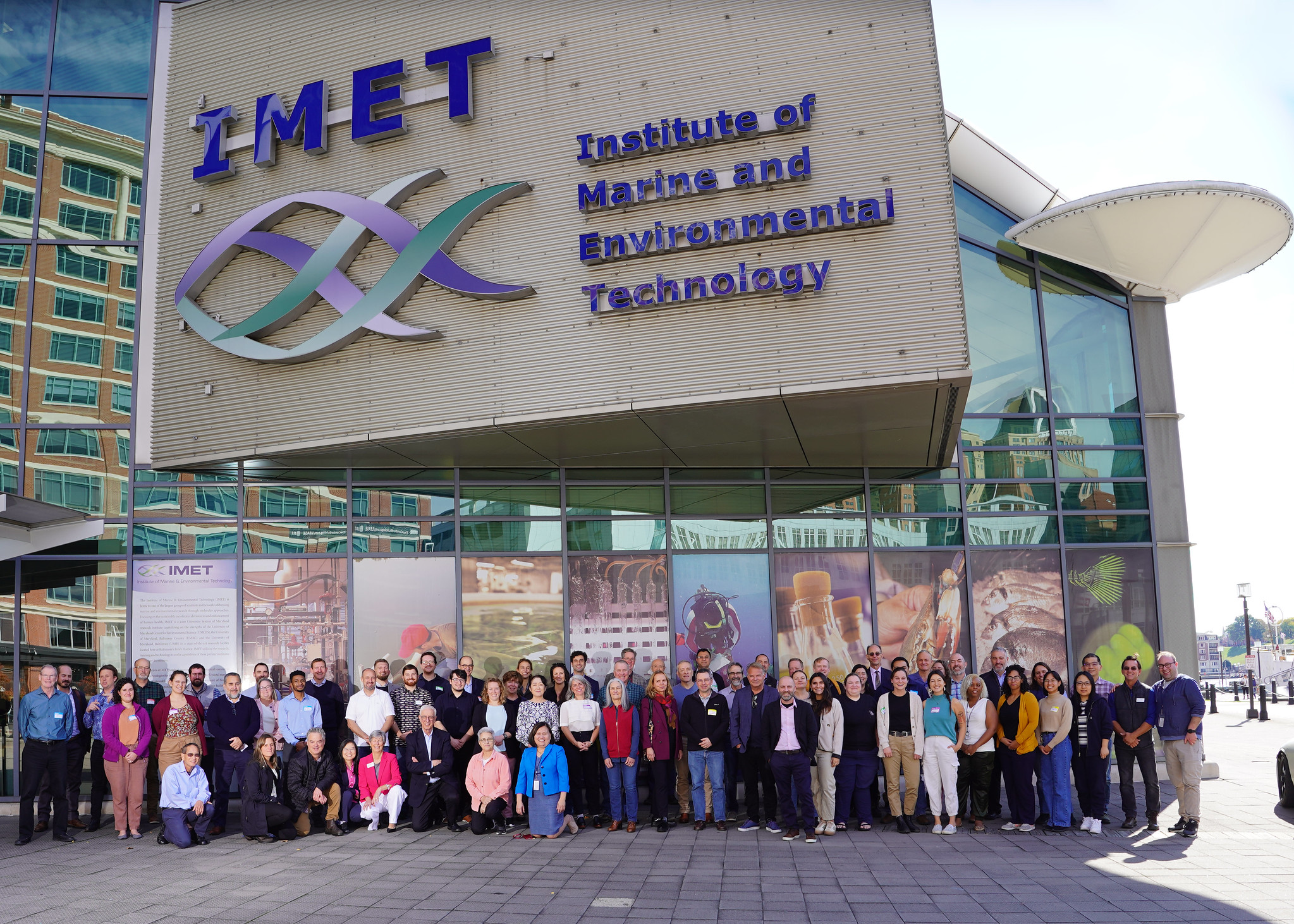
April 20-21, 2023: Special SAS2 Session
RASTECH, Grande Lakes, FL
Introduction and updates from SAS2 – Yonathan Zohar, Institute of Marine and Environmental Technology (IMET), University of Maryland Baltimore County
SAS2– Enabling water, nutrient and energy upcycling in land-based salmon farms- Steven Summerfelt, Superior Fresh
Establishing domestic RAS-specific broodstock for year-round production of optimally performing offspring- Heather Hamlin, Aquaculture Research Institute, University of Maine
A review of research to reduce early maturation in Atlantic salmon- Chris Good, Freshwater Institute
Mitigating early maturation in Atlantic salmon using gene silencing -Ten-Tsao Wong, Institute of Marine and Environmental Technology (IMET), University of Maryland Baltimore County
Exploring current and novel off-flavor mitigation technologies and predictive modeling in RAS – Matthew Stromberg, Institute of Marine and Environmental Technology (IMET), University of Maryland Baltimore County
Zero water discharge in the ‘Purging While Feeding’ water treatment process – Igal Magen, BioFishency
Differences between blood metabolite profiles in RAS Atlantic salmon fed fishmeal versus insect meal diets – Allen Place (presented by John Stubblefield), Institute of Marine and Environmental Technology (IMET), University of Maryland Center for Environmental Sciences
Innovations in aquaculture workforce development programming in Maine and beyond – M. Scarlett Tudor, University of Maine
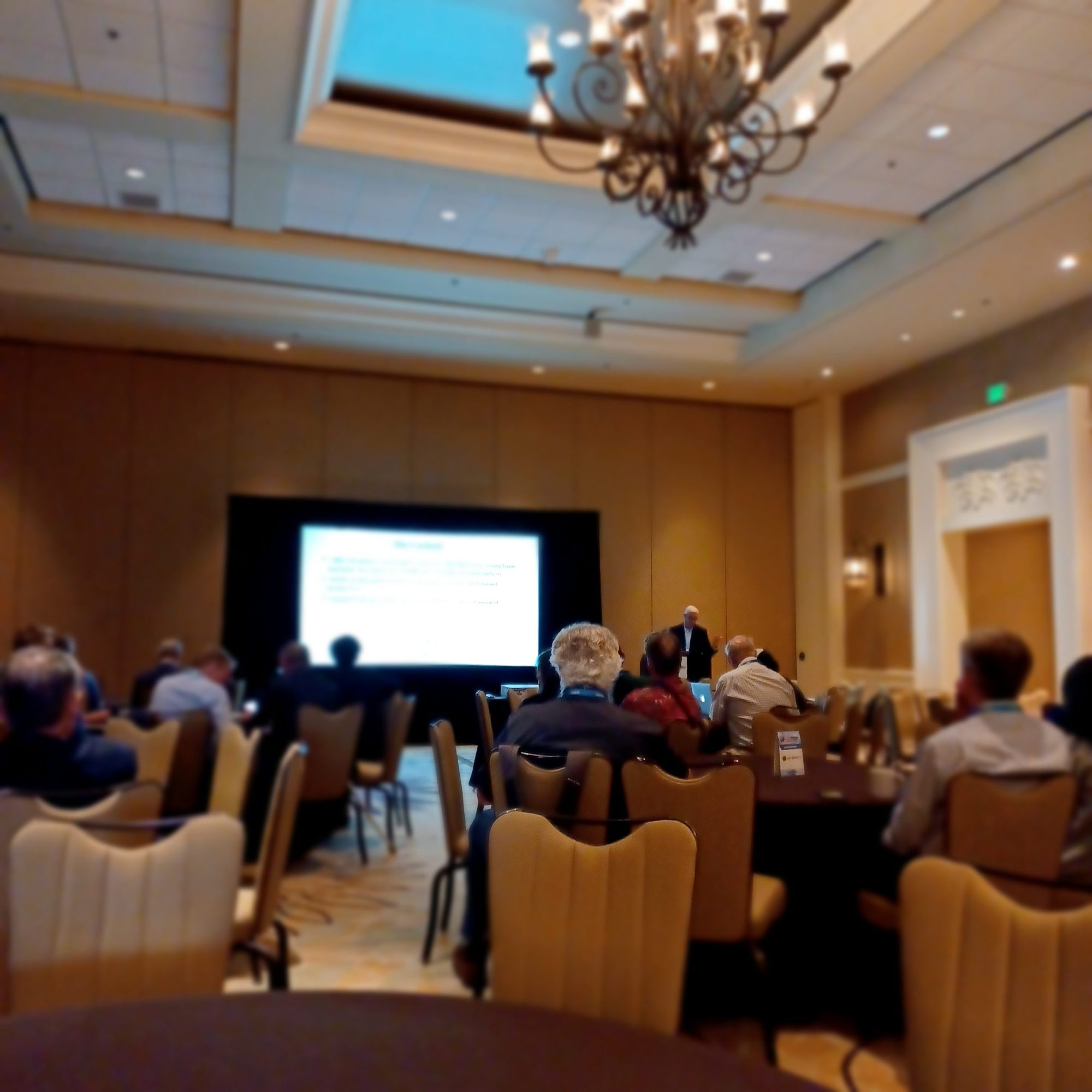
September 27-29, 2022: Joint Conference of Recirculating Aquaculture Salmon Network (RAS-N) and Sustainable Aquaculture Systems Supporting Atlantic Salmon (SAS2)
Orono, ME
Seedstock Moderated by Mike Pietrak (USDA-ARS)
Panelists: Brian Peterson (USDA-ARS), Ben Perry (Benchmark Genetics), Heather Hamlin (University of Maine), Tom Sorby (Kingfish Maine), Nick King (Nordic Aquafarms)
Fish Performance and Health Moderated by Debbie Bouchard (University of Maine Aquaculture Research Institute)
Panelists: Steve Backman (Skretting), Bill Keleher (Kennebec River BioSciences), Kathleen Hartman (USDA-APHIS)
Feeds and Feeding Moderated by Matt Hawkyard (University of Maine)
Panelists: Sarah Cook (Skretting), Allen Place (IMET), Andrew Swanson (Cooke Aquaculture)
Workforce Development Moderated by Debbie Bouchard (University of Maine Aquaculture Research Institute)
Panelists: Scarlett Tudor (University of Maine), Tish Carr (Wabanaki Youth in Science (WaYS) Program), Adam Frederick (Maryland Sea Grant), Keiko Saito (IMET), Alejandro Rojas (AquaBounty)
Industry Challenges Moderated by Steve Summerfelt (Superior Fresh)
Panelists: Ten-Tsao Wong (IMET), Kevin Sowers (IMET), Chris Haughey, (Exciton Clean), Michael Thompson (Penobscot Environmental Consulting), Nordic Aquafarms
Consumer Education and Marketing Moderated by Jim Hurley (Wisconsin Sea Grant)
Panelists: Sharon Moen (Wisconsin Sea Grant), Chris Davis (Maine Aquaculture Innovation Center), Qiujie Zheng (Atlantic Corp), Steve Summerfelt (Superior Fresh), Kaitlynn Ritchie (Morgan State University), Isaac Wu (Virginia Tech)
Off-flavor Research Updates – John Davidson (Conservation Fund’s Freshwater Institute)
Precision Aquaculture in RAS – Mathew Zimola (ReelData)
Community Engagement and Social License to Operate- Emily Whitmore (University of New Hampshire)
RAS-N Road Map and Strategic Plan- John Stubblefield (IMET)
Next Steps for Network – Debbie Bouchard (University of Maine Aquaculture Research Institute) and Yonathan Zohar (IMET)
September 28th: Erik Heim (Xcelerate Aqua)
September 29th: Tony Sutton (University of Maine)
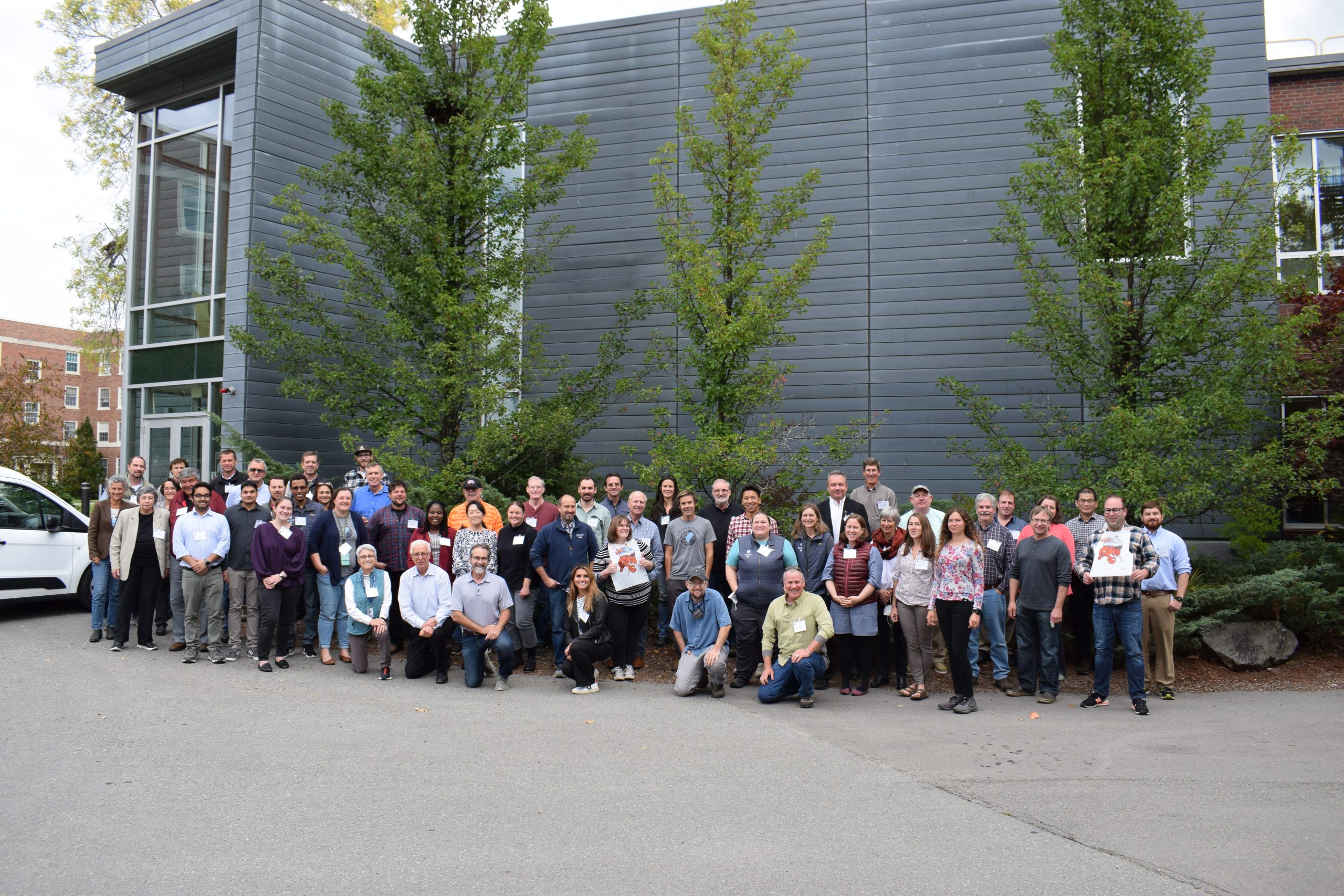
March 1st, 2022: Special RAS Session
Aquaculture America, San Diego, CA
Building Capacity of Atlantic salmon RAS Production in the US: From RAS-N to SAS2 – Yonathan Zohar, IMET
Building Capacity of Atlantic salmon (Salmo salar) RAS Production in the US Using an Industry Driven Stakeholder Network (RAS-N): Engagement and Extension Efforts – Catherine (Cat) Frederick, University of Maryland
Developing a Skilled Workforce for Advancing RAS Through Support from a National Collaborative Effort Utilizing Strong Industry Engagement – Emma Hauser, UWSP-NADF
Off-Flavor Observations: Factors Influencing Accumulation in RAS and New Information on Geosmin Taste-Threshold In Atlantic salmon Salmo salar Fillets – John Davidson, Freshwater Institute
A Novel Advanced Oxidation Technology That Rapidly Removes Geosmin and MIB from Water and Significantly Reduces Atlantic Salmon Depuration Time – Terence Barry, Exciton
Replacing Soy Protein with Insect Meal In a Fishmeal Free Diet for Atlantic salmon Salmo salar – Allen Place, IMET
Conversion of Solid Waste to Biogas in a Saltwater Recirculating Aquaculture System for Atlantic salmon – Kevin Sowers, IMET
Challenges to Anaerobic Digestion of Waste Streams from Land-Based Recirculating Aquaculture System (RAS) Facilities – Abhinav Choudhury, Freshwater Institute. Free access article can be accessed here.
The Effects of Two Water Temperature Regimes On Atlantic salmon Salmo salar Growth Performance and Maturation in Freshwater Recirculating Aquaculture Systems – Chris Good, Freshwater Institute. Free access article can be accessed here.
Evaluating Freshwater Fluidized Sand Biofilter Performance Following Exposure to Low-Dose Peracetic Acid Treatments- Chris Good, Freshwater Institute
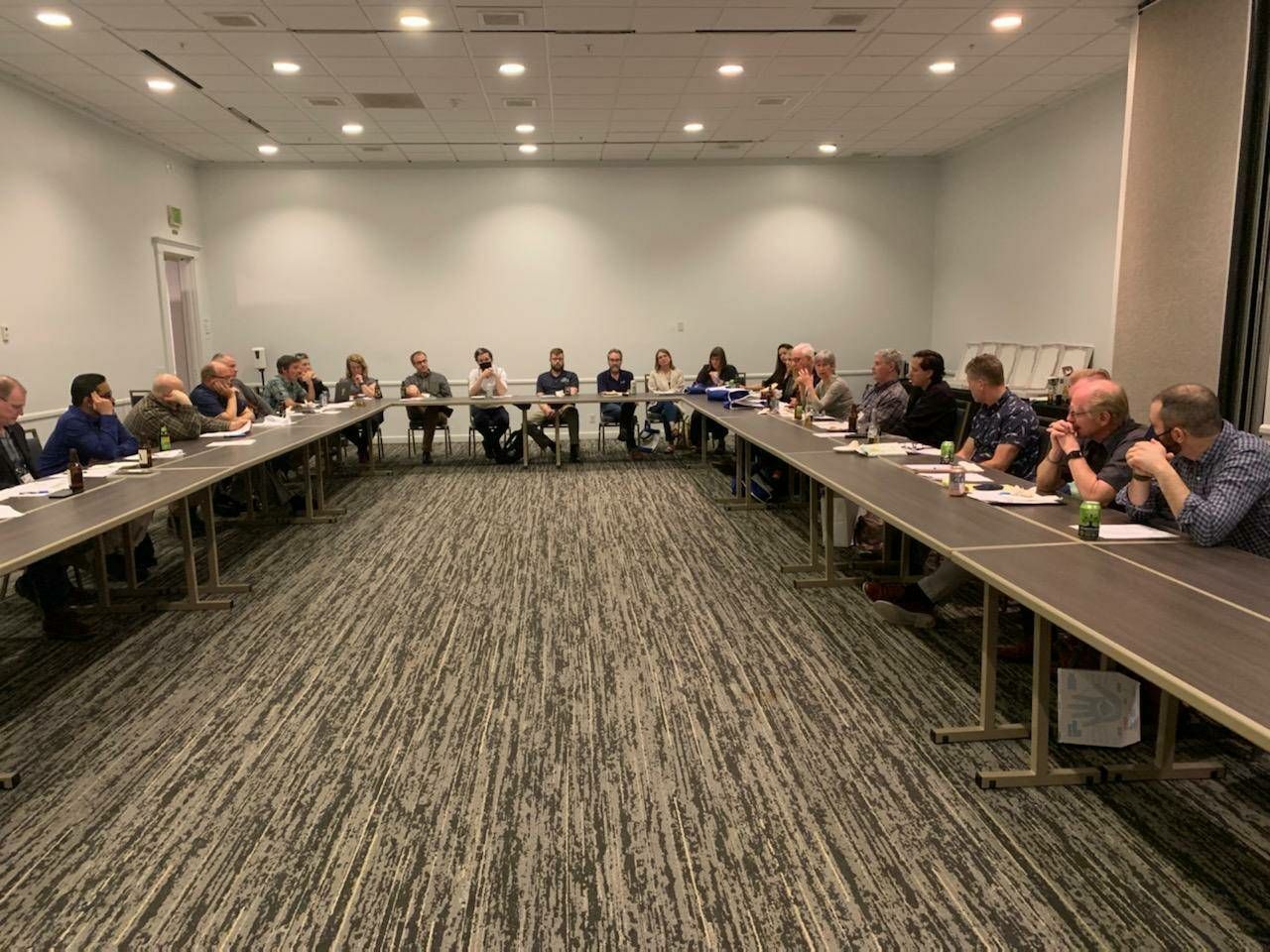
February 8-9, 2022: Third Annual RAS-N Workshop (virtual)
University of Maine, Orono, ME
RAS-N Concept Paper and Next Steps for the Network – Yonathan Zohar, John Stubblefield, and Catherine Frederick, IMET
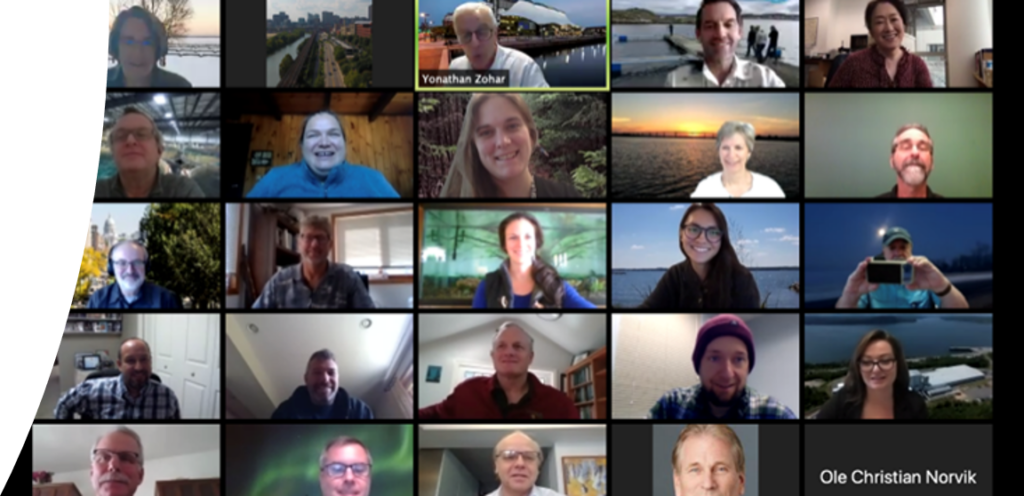
October 8-9, 2020: Second Annual RAS-N Workshop (virtual meeting)
Institute of Marine and Environmental Technology (IMET), Baltimore, Maryland
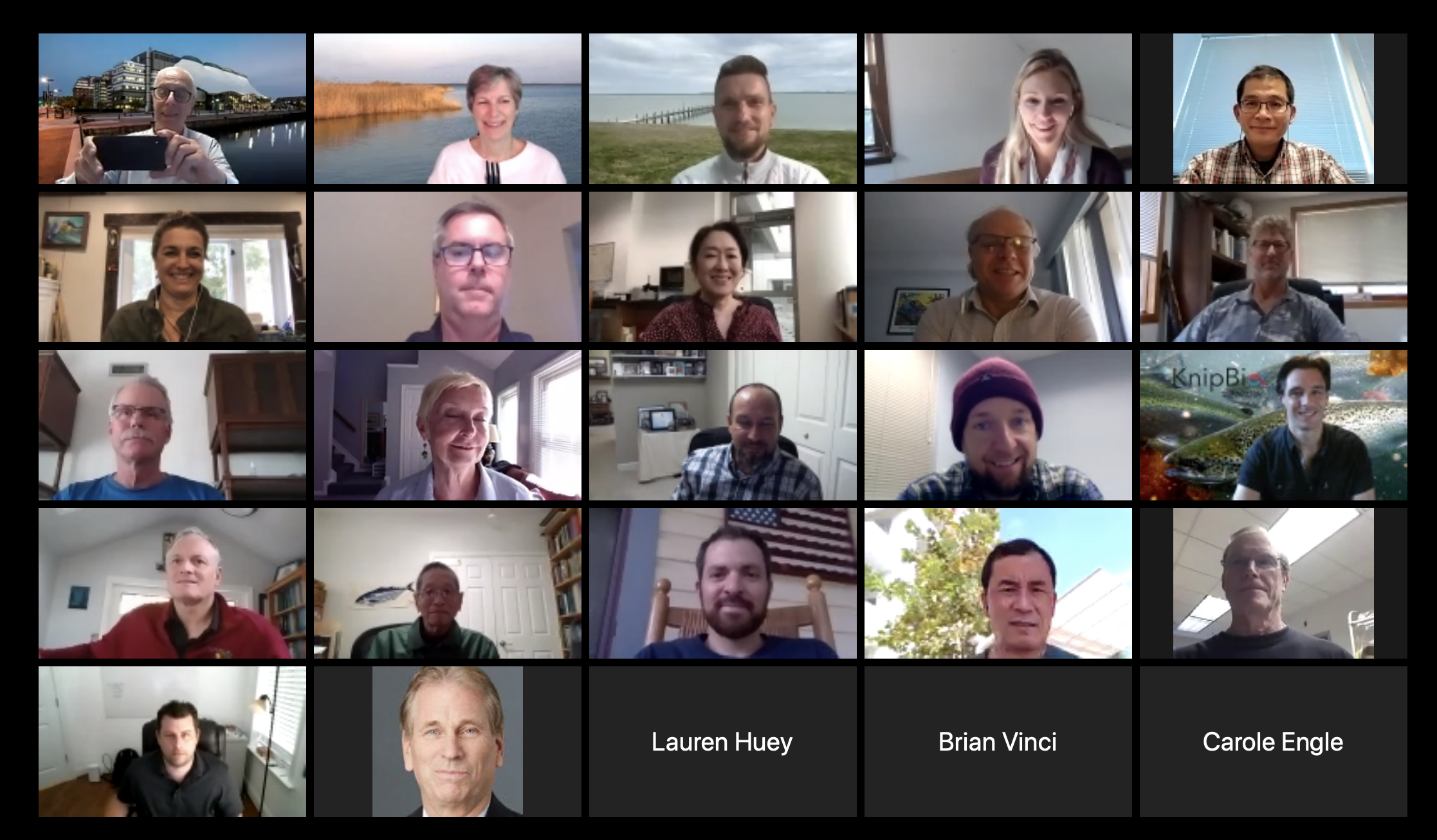
December 10-11, 2019: Inaugural RAS-N Workshop
Harbor View Event Center, Washburn, Wisconsin
Thoughts for the Future of Land-based Aquaculture, Jesse Trushenski, Director of Science, Riverence
University of Wisconsin-Stevens Point Northern Aquaculture Demonstration Facility overview, Greg Fischer, Assistant Director/Research Program Manager
Raising Fish with Care: The Fundamentals of Animal Welfare in Aquaculture, Jesse Trushenski, Director of Science, Riverence
Biosecurity Auditing in Recirculating Aquaculture Systems, Peter L. Merrill, Kennebec River Biosciences, Inc.
Fish Health Requirements and Response to Fish Disease Events, Myron Kebus, Wisconsin Department of Agriculture, Trade and Consumer Protection-Division of Animal Health
A New Approach to Reproductive Sterility in Salmonids, Ten-Tsao Wong and Yonathan Zohar
Salmon RAS and Solid Waste, Keiko Saito, et al.
Why Salmon Eating Insects Instead of Fish is Better for the Environment, Allen Place
The Conservation Fund Freshwater Institute, Christopher Good
National Cold Water Marine Aquaculture Center Update, Brian C. Peterson
Atlantic Salmon Regulations in U.S. Fish & Wildlife Service: Title 50 Regulations, Joel Bader
Aquaculture in Action: Tools for Teaching Science, J. Adam Frederick
Aquaculture Research Institute Workforce Development, Scarlett Tudor
Aquaculture Workforce Development Program: Interactive and Hands-on Application, Emma Wiermaa
UMCES: NOAA-EPP Funded Living Marine Resources Cooperative Science Center Activities, Rosemary Jagus
